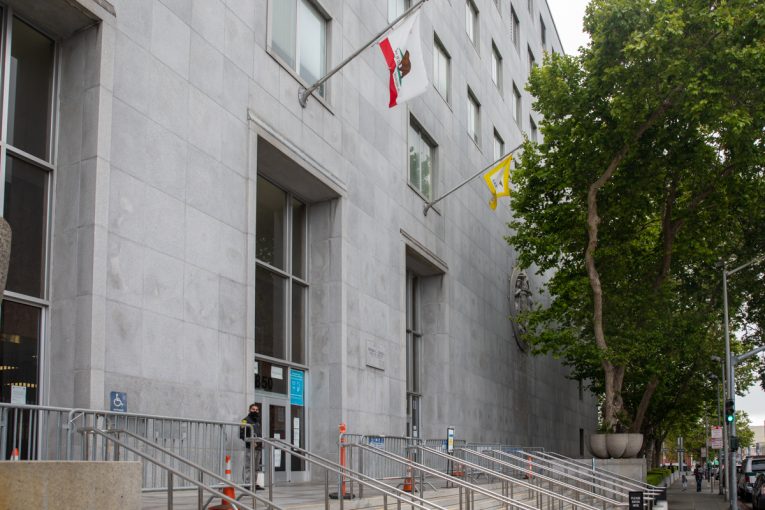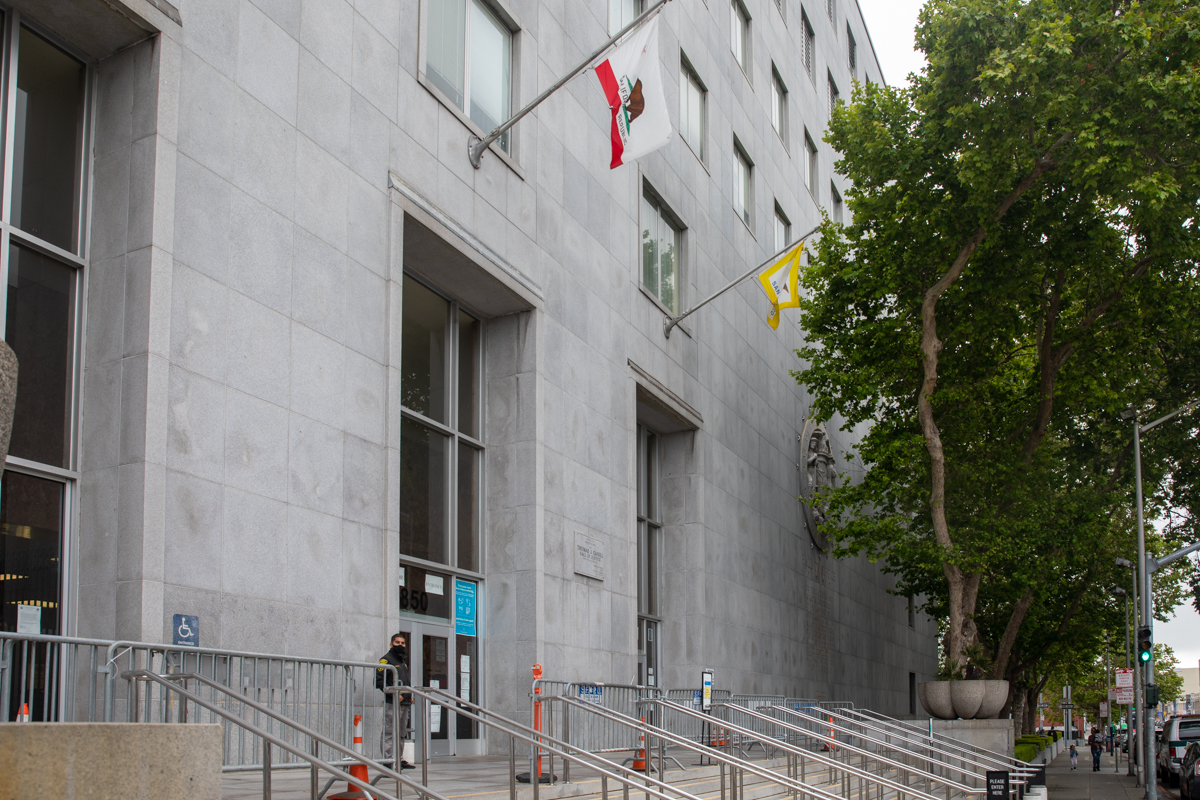

By David M. Greenwald
Executive Editor
San Francisco, CA – It was a bombshell transcript. It gave the opponents of DA Chesa Boudin a great amount of fodder to use against the progressive DA in their effort to recall him. But how fair were the charges?
“I cannot express in any more certain terms my disapproval of the manner in which the Office of the District Attorney is being managed,” said Judge Chan, a former public defender. “Not to make light of the situation, but you can’t run an airline this way.”
He added, “So I hope that people in the District Attorney’s office will shift their focus from some of the bigger issues and concern themselves with the unglamorous yet  necessary work of public prosecution.” Chan continued, “It’s time to really take care of business at home instead of thinking about the national or state stage.”
necessary work of public prosecution.” Chan continued, “It’s time to really take care of business at home instead of thinking about the national or state stage.”
The charge came at a time when Deputy Public Defender Martina Avalos asked Judge Chan to dismiss a 2019 gun case against her client because the DA had failed to properly disclose DNA evidence.
“It is egregious when we’ve had a year and a pandemic for them to sit on this to turn it over and to fulfill their ethical obligations,” Avalos said in court, according to the transcripts.
Rachel Marshall, spokesperson for the DA’s office indicated to the media, “It’s disappointing that the judge in this case decided to air his grievances in open court rather than through the existing communication channels.”
She also told the news that the judge has since apologized to Boudin for those statements “and how they’ve been interpreted and regrets that that others have used this in furtherance of their own political goals.”
She also said that “late discovery is unacceptable to us, and we are working to make sure it never happens again in this or any other case.”
The DA’s office also disputed that they were sitting on evidence.
I won’t defend late discovery here. It happens a lot from what I have seen in our coverage of courts across the state. I’m not in a position to say whether Boudin’s office is worse than others.
For example, the Vanguard recently covered the Harvest Davidson case out of the Placer County Court in the Tahoe Courthouse. That case is several years old, it was initially delayed due to the battle over SB 1437 and whether Davidson could be charged with felony murder under the provisions of the new state law.
But now, the defense attorney is filing a motion to compel the Placer County prosecutor to discover all the evidence in that case—a case in which Davidson has not waived his speedy trial rights and will have to go to trial now in December.
Back in San Francisco, it seems reasonable to understand that we are not operating under normal times.
There is a certain amount of chaos in the court system—and, remember, Boudin took office in January 2020 after having been elected in November (and really he didn’t know he was elected until December). Two months into his term, the world shut down and nothing has been the same since.
With that said, what I do know is having been in San Francisco—as well as 10 other court houses across the state through our court watch program—San Francisco does have a very serious problem. But from what I can tell, it is on the court management, not the DA’s office.
For one thing, unlike countless other counties—Sacramento, Yolo, Contra Costa, Alameda, Santa Barbara, Fresno, Ventura, Riverside and Orange Counties—San Francisco (as well as Los Angeles) never figured out how to stream court proceedings.
We have written numerous letters to the presiding judge. A group of interns and myself attended her courtroom last July. They promised that they would resolve the problems with streaming video and never did.
To this day, the only way we have been able to cover cases in San Francisco is to do it in person and, at various times, we have felt very unsafe doing that.
But we also learned of a much bigger problem. Two weeks ago, we covered a press conference outside of the courthouse.
San Francisco Public Defender Mano Raju and others filed a lawsuit due to lack of speedy trial access.
“To illustrate the problem, Mano Raju noted that someone they represent had a court hearing last week, and he came to court thinking that this is the last day that he can be in a hearing before being sent out to a trial court. “They put the case over,” Raju said. “They didn’t put it over a couple of days. They didn’t put the case over a couple of weeks. Put the case over to February of 2022, months past the last day. Justice delayed is justice denied.””
On September 14, the Public Defender’s Office and others filed a lawsuit against the Superior Courts of California on this issue.
“San Francisco’s criminal legal system is in a state of crisis. As of August 30, 2021, there are about 429 people whose pending criminal case has gone past the statutory deadline for trial. Of those, approximately 178 people are being held in jail, typically locked in their cells for 23 hours a day. Most have been awaiting trial for a period of months and some have been incarcerated for a year or more,” they allege.
Raju writes: “This humanitarian crisis stems from the Superior Court’s now-routine practice of continuing criminal cases for months past their statutory trial deadline, and its refusal to use courtrooms in the Civic Center Courthouse to clear the resulting massive, and now growing, backlog of criminal cases.”
Last week, the SF Public Defender tweeted: “Why are there ZERO felony trials happening in @SFSuperiorCourt when we have a backlog of HUNDREDS of cases past their trial deadline? This is a crisis being made worse.”
This is not an issue that is on the DA. This is on the courts and, by extension, the judges who effectively run the courts.
“The San Francisco Superior Court continues to give criminal trials the highest priority,” said court spokesperson Ken Garcia. “We will respond to the complaint in court.”
The response by the court is beside the point. The problem is that now you have people stuck in lockdown 23 hours a day for over a year and no end in sight—most of them have yet to have been convicted of a crime.







As described, this is a horrible situation. I’m not sure why your lead is ‘it’s not the DA’s fault’ and you bury the crisis way down at the end; I almost didn’t read the article. Seems the crisis is much more deserving of the lead subject of a story than “Chesa didn’t do it!”.
Ran the story on the jail situation three weeks ago. This was my follow up to Judge Chan statements in court – putting his complaint into perspective. As I pointed out a few weeks ago, the judge was complaining about late discovery – which is a problem – but that’s minor compared to the problems in the courts as a whole which are wholly in the judges purview.
ah